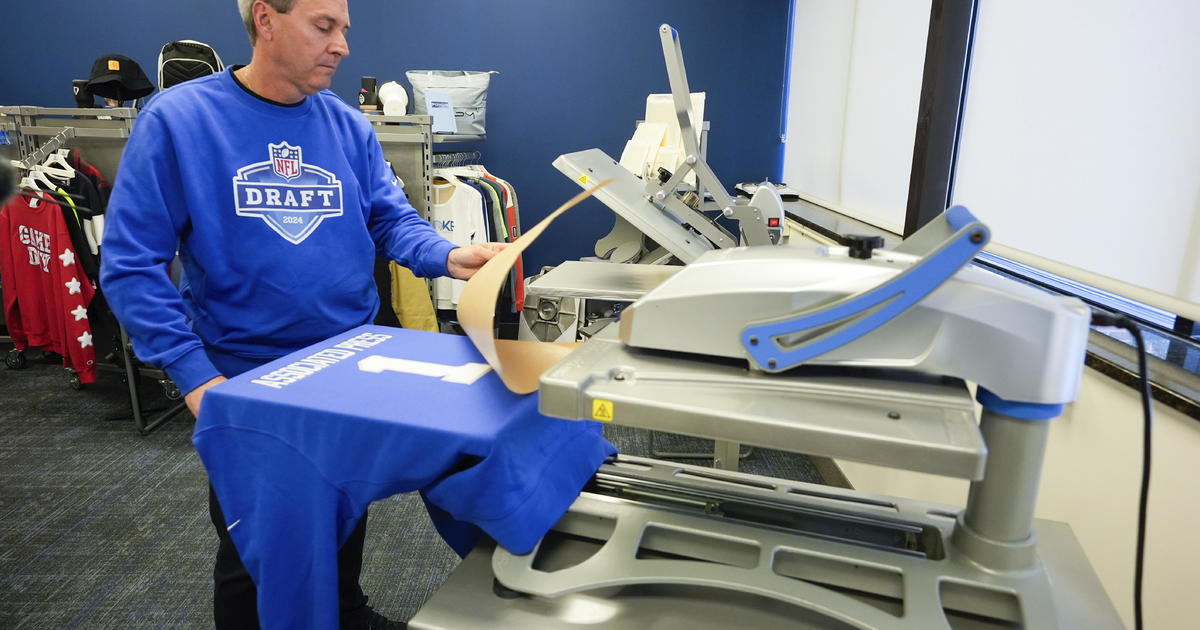Tech Tour Day Two: More Terrific (Michigan) Tech

Saturday, it was uppen attem for a 7:30 a.m. breakfast with Glenn Mroz, Michigan Tech's personable president, and David Reed, its vice president for research, at the Finnish-themed Suomi restaurant (pannukakku, the Finnish pancake! Finnish French toast made with Finnish egg bread, nisu! Yum!).
They talked about Michigan Tech's latest big news -- the university has established the Michigan Tech Entrepreneurial Support Corp. A nonprofit corporation governed by the university's Board of Control, the corporation will help move early stage discoveries from university labs to successful commercial enterprises.
Tech officials say that many of their researchers make discoveries and develop inventions that could become marketable products. In fact, the university had more than 40 invention disclosures last year (half of which had an undergrad or graduate Michigan Tech student listed as an inventor!).
But those researchers frequently lack the funding or administrative infrastructure to turn a clever idea into a startup.
"It's worse than the so-called valley of death between the formation of a startup and commercial success," Reed said.
Enter the MTESC, supported by a new gift from an anonymous donor. It will fund small grants to the researchers.
Michigan Tech had more than $58 million a year in sponsored research in the fiscal year that ended June 30, up from $53 million a year before. It says it's by far the most productive research university in Michigan, based on invention disclosures per $10 million of research.
On Sept. 30, Tech hosted an Entrepreneurship and Technology Symposium that attracted more than 200 people to two separate sessions, one for the public, the other for faculty. Presenters such as Tech alum and successful entrepreneur Dave House told the crowd that universities are reclaiming their status as incubators of innovation. House and seven other alumni-entrepreneurs explained how the universities can make the western UP into a thriving nursery for startup technologies.
"Probably the most interesting ((question from the crowd) was from a student from India, who said he had a business idea but wondered whether he should start it now here, or wait until after he graduated," Mroz said. "Two of our alums from India told him, start it here, start it now."
All of Michigan Tech's business incubators remain full except for the one that just opened, a former Upper Peninsula Power Co. building on the shores of the Portage Canal (which is actually an inlet of Lake Superior, which makes northern Houghton County and Keweenaw County technically an island). The incubators house 17 companies with nearly 250 jobs.
Mroz and Reed said the university last year also put an entrepreneurial leave policy in place, so faculty can leave to run a business for a while and then return to their faculty posts after the business is sold or when professional managers take over.
Michigan Tech also sees the economy coming back, with 185 exhibitors at a recent career fair, with Chrysler and Caterpillar returning for the first time in a few years.
Overall, Mroz said, the new mantra for all Michigan Tech services is "Fed-Ex quick and Disney friendly."
***********************************************************
My next stop you might not think of as technological -- Christopher Plummer, associate professor of theatre, and Patricial Helsel, assistant professor of theatre. But I'm an old theatre geek and besides, I trust Michigan Tech PR boss Jenn Donovan, who develops my itineraries every fall, so what the heck, I went.
And boy, was I impressed. Michigan Tech now offers five bachelor of science and bachelor of arts programs in theater, media and performance disciplines, and is working on a sixth.
The basic program, about five years old, includes both bachelor of science and bachelor of arts degrees in theatre and entertainment technology. The bachelor of arts degree is much like a traditional theatre degree, heavy on theatre history, building sets and designing costumes.
But the bachelor of science degree is one of only two programs like it in the country (the other is the University of Nevada - Las Vegas). Besides the theatre, this degree requires significant study in either mechanical engineering, electrical engineering or computer science.
"So when the technical director wants 30 dancers on the second floor of a set, with no visible supports on stage, and when they jump the set isn't supposed to move, we teach the technology that allows you to do that," Plummer said.
There are also related degrees -- a bachelor of arts in sound design and a bachelor of science in audio production. The BA is degree is traditionally focused on music, arts and media, while the BS requires 30 credits of electrical engineering or computer science.
"Other schools' programs only prepare students to work in recording studios, which are closing," Plummer said. "We offer good training in live performance and sound in film and theatre as well as the studio."
A brand new program this year is a bachelor of arts in theatre and electronic media performance, a more traditional acting major. But it also involves heavy training not just on stage, but also on video and in new media like video game voiceovers and audiobooks.
The Tech program also runs a Video Enterprise, part of Michigan Tech's entrepreneurial initiative in which groups of students work on real-world problems for businesses or try to start their own business. This Enterprise does video work for private clients -- right now, it's working on a documentary of an opera being produced for next summer's Pine Mountain Music Festival in conjunction with the National Opera of Finland.
And the latest and greatest degree? Still in the planning stages is a new bachelor of fine arts in digital cinema. It would be the first BFA degree Tech has ever granted.
Plummer said Tech's media departments feature the highest-end computing power on campus, and that's saying something at an engineering school. They have their own gigabit network, high-performance RAID arrays and more to handle video production needs. They have software that can model acoustics: "We can build a room in the computer, put instruments and speakers in it, and let you put on headphones and hear what that room would sound like if you built it."
The Walker Arts and Humanities Center, adjacent to Tech's 1,000-seat Rosza Center auditorium, is also home to Michigan Tech's music programs, which include two jazz big bands, two small jazz combos, and the infamously rowdy Michigan Tech Pep Band.
*******************************************************************
From there it was a short jaunt across campus to Michigan Tech's Electrical Energy Research Center to the offices of Chunming Gao, assistant professor in the School of Technology, who's figured out how to control a keyboard with just one button.
Yep, one button. The key is using the accelerometers built into modern smartphones. You point or move the smartphone in a particular direction or in a particular motion and click the one button. The software recognizes that motion or direction as a particular letter or number.
Gao has worked out detailed "maps" of the numbers and letters for his system. He says it could also work in an even smaller device, like a pen or a joystick.
In his laboratory, Gao said he's taken new users and taught them the system, and they're typing three words a minute within an hour. Gao, the acknowledged expert, can use the system to type 11 words a minute.
Gao wrote the software involved himself in the C language.
Applications, he said, might include the visually impaired who can't use a keyboard reliably but who can memorize motions, or in technical fieldwork, or for the military.
You can check out the concept for yourself at www.yauim.com.
***************************************************
And then it was time for my final Michigan Tech stop, the office and laboratory of Elena Semouchkina, associate professor of electrical and computer engineering, and her invisibility device.
Yep, you read right. She's working on it.
Only it isn't quite like Harry Potter's magic invisibility cloak. It's more like the cloaking shields used by the Romulans on "Star Trek."
Semouchkina joined the Tech faculty a year ago after doing research work at Penn State.
Her work started out as something else entirely -- miniaturized electronic devices like filters and antennas that could be placed in substrates. But the dielectric side effects of the devices proved more interesting than the devices themselves.
It turns out the devices resonate at frequencies that can cancel out some forms of electromagnetic radiation, squeezing or stretching some wavelengths.
Thus, if a radar wave hits a cylinder that is covered with those devices, the waves behind the object look the same as the waves in front of the object -- in essence, the cylinder is invisible to radar.
The implications are fascinating. How about submarine periscopes that can't be picked up by enemy radar? Or airplanes or ships?
It's also possible to create a cloak for visible light, but it's much tougher to find the materials to do so, Semouchkina said. Metals and ceramics don't resonate at the proper, extremely short wavelengths of visible light. She said some form of glass, amorphous silicon, or even plasma or quantum dots might work. (Which is where she officially went over my head.)
Semouchkina has three Ph.D. and two Masters students working in her labs, a cross-disciplinary team that touches materials science, computer engineering and electrical engineering.
******************************************************
And that was it. Eight fantastic visits over two days with fascinating technologies that beg to be brought to market and make Michigan jobs. Which is what the Tech Tour is all about.
After an afternoon of sightseeing in the Keweenaw -- I finally got the colors right, they're at their peak, and you'll see some pictures online -- it's off to a Monday with a double visit, to Saginaw Valley State University and Central Michigan University. Let's go!
(c) 2010, WWJ Newsradio 950. All rights reserved.



